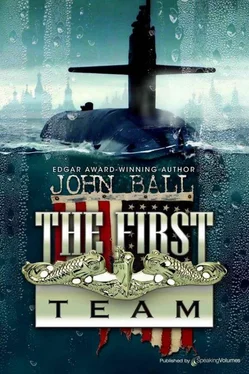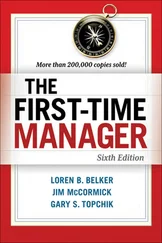Джон Болл - The First Team
Здесь есть возможность читать онлайн «Джон Болл - The First Team» весь текст электронной книги совершенно бесплатно (целиком полную версию без сокращений). В некоторых случаях можно слушать аудио, скачать через торрент в формате fb2 и присутствует краткое содержание. Год выпуска: 2013, Жанр: Триллер, на английском языке. Описание произведения, (предисловие) а так же отзывы посетителей доступны на портале библиотеки ЛибКат.
- Название:The First Team
- Автор:
- Жанр:
- Год:2013
- ISBN:нет данных
- Рейтинг книги:5 / 5. Голосов: 1
-
Избранное:Добавить в избранное
- Отзывы:
-
Ваша оценка:
- 100
- 1
- 2
- 3
- 4
- 5
The First Team: краткое содержание, описание и аннотация
Предлагаем к чтению аннотацию, описание, краткое содержание или предисловие (зависит от того, что написал сам автор книги «The First Team»). Если вы не нашли необходимую информацию о книге — напишите в комментариях, мы постараемся отыскать её.
Student protesters are being slaughtered in the Midwest.
The Jewish pogroms have begun.
You are now living in Soviet — occupied America!
One nuclear submarine and a handful of determined patriots against the combined might of Russia and Soviet-occupied America… The Most Explosive and Gripping “What If” Novel of Our Time!
First published January 1971
The First Team — читать онлайн бесплатно полную книгу (весь текст) целиком
Ниже представлен текст книги, разбитый по страницам. Система сохранения места последней прочитанной страницы, позволяет с удобством читать онлайн бесплатно книгу «The First Team», без необходимости каждый раз заново искать на чём Вы остановились. Поставьте закладку, и сможете в любой момент перейти на страницу, на которой закончили чтение.
Интервал:
Закладка:
From the beginning Admiral Haymarket had applied some ideas of his own toward maintaining the secrecy of the project. In the entire Pentagon there was not one scrap of paper which supplied any information whatsoever concerning Thomas Jefferson. The necessary communications facilities were both inconspicuous and protected by fail-safe, auto-destruct devices set to function the moment that the equipment was opened or a call attempted without first dialing a code number known, just prior to the start of the surprise conflict, to four men. The funding was handled by the President himself with dollars which were never knowingly appropriated for the purpose by the Congress.
During the time that the headquarters had been under construction the admiral had been busy reviewing the records of hundreds of individuals in whom he had had a preliminary interest. He weeded ruthlessly, not always following the guidelines which had been in use for some time to decide who would be trustworthy and who not. In particular he chose one newsman whose capabilities were extraordinary and through General Gifford approached him about serving his country without giving the least indication as to what the duty would entail, where it would be located, or the duration of the time involved. Shortly after that conference had been held the editorial employees of a major national publication were told that one of their colleagues had been diagnosed as having a serious lung condition; there was genuine concern and sincere regret when he left for Arizona and an indefinite period of recuperation. Not long after his departure the word filtered through that his illness had worsened to the point where he was being kept in absolute quiet without visitors or communications by mail. Eventually some Christmas cards were sent to him, but none were received in return.
The admiral also knew of, and got, a former Marine major who had been mustered out of service when he recovered from battle injuries incurred in Vietnam with part of his left hand missing. A retired industrialist quietly disappeared from the golf club where he had been spending much of his time; it was understood that he had interested himself in some mineral resources project located in northern Alaska.
An Air Force search and rescue pilot whose physical bravery and devotion to duty were legendary was relieved of his command and assigned to “classified duty”; his colleagues knew better than to ask where he had gone.
The most spectacular addition to the team the admiral was so carefully assembling was a circus performer whose death-defying high dives had terrified spectators throughout Europe and America. The admiral had had to go to the President himself to get him since the Central Intelligence Agency had had no intention of relinquishing one of its best men.
When they were finally assembled, they constituted the best that the nation had available. Gradually, other personnel were selected to support them and to carry out the field operations they would direct, if such action became necessary. To these other people the invisible men who constituted the heart and brains of Thomas Jefferson were known by a code name of their own invention. The admiral liked it and adopted it officially; from that time forward they were called the First Team.
As the admiral had watched the inauguration of the new President on television he had given silent thanks for the foresight of the man who was being replaced. The new President, he had felt with reasonable confidence, would go along with what had already been established, but it was quite doubtful that he would have been willing to fund and develop something like Tom Jefferson on his own initiative.
It had not been long after that that the President had been compelled to flee Washington and, invisibly, the First Team had moved to the center of the stage.
The thought of what they were up against was in every member’s mind as the team met around the functional conference table on the same day that the funeral services for Admiral Haymarket had been held earlier, by permission of the occupying forces, in
Arlington National Cemetery. It was a grim and sober time; so much so that the very walls seemed to reflect back the gravity which pervaded the room.
One minute before the time at which the meeting was formally scheduled to begin, the door to the residential section opened and Admiral Haymarket entered the room. He sat down briskly at the head of the table, rested his forearms on the top, and nodded his greetings. “We seem to be off to a good start,” he said. “Every report I’ve had on our initial effort has been most encouraging.”
“Yes, sir,” the Marine major said. “The operational team that handled it did a first-rate job.”
“Let’s have a brief account,” the admiral said. “All of us can stand to hear a little good news.”
The major addressed the table generally. “The body was defrosted and prepared as planned. It was a little gruesome at the time, but the way in which Dr. Heise smashed in the face with the duplicate steering wheel was a work of art. The accident, I understand, went off perfectly except for the fact that there was no fire; we were rather hoping for one.”
“Couldn’t you have arranged that?” the circus performer asked. “Yes, but not without an element of risk; it’s difficult to do without leaving some evidence on the scene. We decided against it.”
The retired industrialist made a note. “I’ll look into that,” he said. “We ought to be able to develop something.”
“Fine,” the admiral commented. “Go on, Ted.”
The major continued. “Our study of Rostovitch indicates that he never takes anything at face value, and he didn’t this time. He went to the Bureau of Naval Personnel personally, don’t ask me why, and picked up the fingerprint card we had planted there. I’ve had a good report on that.”
The search and rescue pilot, who wore the Air Force Cross ribbon on his uniform, raised his hand.
“Yes, Henry,” the admiral said.
“When you laid out the ground rules, you stated that we were expected to bring up every doubt that arose in our minds.”
“Right.”
“Two questions: first, is there any likelihood that they might exhume the body?”
“If they do,” the major said, “I believe that it will withstand any examination they might give it; it was very carefully selected. We have a set of dental charts planted, too, in case they go that route.” “All right, I’ll accept that. Second question: admiral, at this moment how many people outside of this room know that you are still alive?”
“The President knows; I am in contact with him. The operational team that staged the accident knows; that was unavoidable. Other persons within our organization know because they have to. And my wife knows. I’ve been married to her for more than thirty years and her discretion is absolute. She’s had lots of practice.”
The former reporter spoke up. “I saw a little of your funeral on TV — they didn’t allow much of it on the air. She wept very convincingly; I was deeply moved.”
“She was an actress,” the admiral said, “and a damn good one, before I married her. Any more questions?”
There were none.
“All right. Gentlemen, as to our campaign plans: we have not had adequate time since this department was established to prepare for all contingencies. During this past week I have been reviewing everything that we do have and all of the other possibilities that suggested themselves. Until someone comes up with something better, I’m in favor of going ahead with Low Blow. Against the background of the present situation, it’s the best bet that we’ve got.”
There was silence.
“Any comments?” the admiral asked.
“We’d be putting a lot of our eggs into one basket,” the industrialist said, “but it’s one hell of a basket.”
Читать дальшеИнтервал:
Закладка:
Похожие книги на «The First Team»
Представляем Вашему вниманию похожие книги на «The First Team» списком для выбора. Мы отобрали схожую по названию и смыслу литературу в надежде предоставить читателям больше вариантов отыскать новые, интересные, ещё непрочитанные произведения.
Обсуждение, отзывы о книге «The First Team» и просто собственные мнения читателей. Оставьте ваши комментарии, напишите, что Вы думаете о произведении, его смысле или главных героях. Укажите что конкретно понравилось, а что нет, и почему Вы так считаете.












